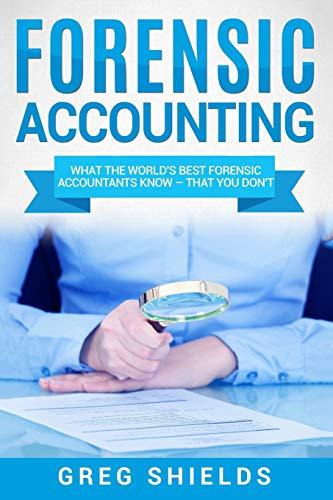Question
III . Class Project: Assume you are the senior accountant on an audit engagement of a fictitious business, Pine Street Company (PSC). Assume the instructor
III. Class Project:
Assume you are the senior accountant on an audit engagement of a fictitious business, Pine Street Company (PSC). Assume the instructor is the engagement partner. You are to prepare an audit program for PSC. The firm manufactures and sells bicycles. The audit program must be in one of the following areas of the business: accounts receivable and revenues; inventories and costs of goods sold; accounts payable; payroll; or property, plant and equipment.
Week 3 - Critique the three following (attachments) audit programs for cash examples.
PSC.Audit Program--Cash Audit Program #1.docx
PSC Audit Program Cash Audit Program #2.docx
PSC Audit Program Cash Audit Program #3.docx
Prepare a well written 2 to 3 page paper. Use the following items as necessary as a guide. See chapter 6.
-How well did each program address the assertions? Existence and occurrence Rights and obligations Completeness
Cutoff Valuations, allocation, and accuracy Presentation and disclosure Did any of the audit programs provide clear descriptions of the assumptions?
How were the risks identified? Was the list of risks complete? What were your thoughts on the objective of the audit? How would you assess the scope of the audit? How would you assess the quality and completeness of the analytical procedures? What positive and negative confirmations were identified? How would you assess the completeness of the risk assessment procedures? How would you assess the quality and completeness of the tests of controls?
How would you assess the quality and completeness of the substantive procedures? Did the audit program adequately address internal controls? Rank the audit programs in letter order with A being the best, B next, etc.
Identify the deficiencies in each of the three audit programs. Submit your document.
PSC
Cash Audit Program #1.
Company Balance Sheet Date 12/31/2014
| Audit Objectives | Audit Procedures for Consideration | N/A Performed by | Workpaper Index |
|
| FINANCIAL STATEMENT ASSERTIONS E/O Existence or occurrence. V/A Valuation or allocation. C Completeness. P/D Presentation and disclosure. R/O Rights and obligations. |
|
|
|
| AUDIT OBJECTIVES A. Cash exists and is owned by the client (assertions E/O and R/O). |
|
|
|
| B. Cash balances reflect a proper cutoff of receipts and disbursements (assertions E/O, C, and V/A). |
|
|
|
| C. Cash balances as presented in the balance sheet properly reflect all cash and cash items on hand, in transit, or on deposit with third parties (assertions E/O, C, and P/D). |
|
|
|
| D. Cash balances are properly classified in the financial statements, and any restrictions on the availability of funds are properly disclosed (assertions R/O and P/D). |
|
|
|
| BASIC PROCEDURES |
|
|
| A | 1. Using the standard AICPA bank confirmation form, request confirmation as of the audit date for each bank account. Also request confirmation of material cash in savings institutions, certificates of deposit, and compensating balances. Retain copies of all confirmations in the workpapers. Mail second requests if necessary. |
|
|
|
| Normally, account numbers or certificate of deposit numbers to be confirmed should be listed. Bank account numbers are often incorrectly listed, thus you may want to check these before mailing. |
|
|
|
| 2. Determine those bank accounts for which subsequent period cutoff bank statements may be necessary and request from the bank(s) by letter that such cutoff statements be mailed directly to our (auditors) post box. |
|
|
|
| If possible, procedures that use cutoff bank statements should be timed to allow the return of the statement without interruption of the clients normal operations. |
|
|
| A, B, C, [D] | 3. Obtain copies of each accounts bank reconciliation for the workpapers and perform the following procedures: |
|
|
|
| a. Trace the bank balance on the reconciliation to the standard bank confirmation received from the bank (or the balance per bank statement for any accounts not confirmed). |
|
|
|
| b. Trace the reconciled book balance to the general ledger, trial balance, or lead schedule as applicable. |
|
|
Step by Step Solution
There are 3 Steps involved in it
Step: 1

Get Instant Access to Expert-Tailored Solutions
See step-by-step solutions with expert insights and AI powered tools for academic success
Step: 2

Step: 3

Ace Your Homework with AI
Get the answers you need in no time with our AI-driven, step-by-step assistance
Get Started


